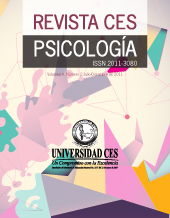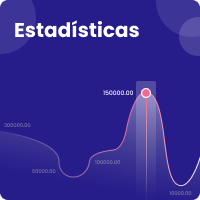El papel de la inteligencia emocional del profesor para la eficacia y la gestión del aula
DOI:
https://doi.org/10.21615/cesp.13.2.2Palabras clave:
Maestros, Inteligencia Emocional, Eficacia del Maestro, Eficacia de la Gestión del AulaResumen
En los últimos años, diversos estudios revelaron múltiples beneficios de la inteligencia emocional (IE) de los maestros con respecto a su desempeño profesional, el proceso de enseñanza y aprendizaje, el rendimiento escolar de los estudiantes, su satisfacción laboral, la reducción del estrés y el agotamiento, y la importancia de las relaciones interpersonales en la escuela. Sin embargo, pocos estudios han investigado cómo las capacidades de IE de los maestros afectan su efectividad en la enseñanza y el manejo del aula. En este sentido, el objetivo de este estudio fue doble: examinar la relación entre las capacidades de IE del maestro, su eficacia en la enseñanza y su eficacia en la gestión del aula; y analizar la relación entre las características del maestro (género), su formación profesional (tiempo de servicio y formación académica) y sus capacidades de IE. 634 maestros portugueses completaron un formulario con datos personales y profesionales, y respondieron una adaptación del Cuestionario de Habilidades Emocionales y Competencia, y la Escala de Eficacia del Maestro en el Manejo del Aula y la Disciplina. Los análisis del modelo de ecuaciones estructuradas mostraron que los maestros que tienden a tener niveles más altos de capacidad para percibir, expresar y manejar las emociones mostraron niveles más altos de eficacia docente y niveles más altos de eficacia en el manejo del aula; y, más capacidad para manejar las emociones.
Descargas
Referencias bibliográficas
Ahsan, M. T., Sharma, U., & Deppeler, J. M. (2012). Exploring pre-service teachers perceived teaching-efficacy, attitudes and concerns about inclusive education in Bangladesh. International Journal of Whole Schooling, 8(2), 1–20.
Allen, V. D., MacCann, C., Matthews, G., & Roberts, R. D. (2014). Emotional intelligence in education: From pop to emerging science. In R. Pekrun & L. Linnenbrink-Garcia (Eds.), Handbook of emotions in education (pp. 162–182). Routledge
Arbuckle, J. L. (2012). IBM SPSS AMOS 21 User's Guide. Smallwaters Corporation.
Bandura, A. (1997). Self-Efficacy: The Exercise of Control. WH Freeman/Times Books/ Henry Holt.
Brackett, M., Rivers, S., Shiffman, S., Lerner N., & Salovey, P. (2006). Relating emotional abilities to social functioning: a comparison of self-report and performance measures of emotional intelligence. Journal of Personality and Social Psychology, 91, 780–795. https://doi.org/10.1037/0022-3514.91.4.780
Becker, E. S., Goetz, T., Morger, V., & Ranellucci, J. (2014). The importance of teachers' emotions and instructional behavior for their students' emotions e an experience sampling analysis. Teaching and Teacher Education, 43, 15-26. https://doi.org/10.1016/j.tate.2014.05.002
Byrne, B. M. (2010). Structural Equation Modeling with AMOS-Basic Concepts, Applications, and Programming. Lawrence Erlbaum.
Cejudo, J., & López-Delgado, M. L. (2017). Importancia de la inteligencia emocional en la práctica docente: Un estudio con maestros. Psicología Educativa 23, 29–36. https://doi.org/10.1016/j.pse.2016.11.001
Dicke, T., Parker, P. D., Marsh, H. W., Kunter, M., Schmeck, A., & Leutner, D. (2014). Self-efficacy in classroom management, classroom disturbances, and emotional exhaustion: A moderated mediation analysis of teacher candidates. Journal of Educational Psychology, 106, 569–583. https://doi.org/10.1037/a0035504
Djigić, G., & Stojiljkovic, S. (2012). Protocol for classroom management styles assessment designing. Procedia-Social and Behavioral Sciences, 45, 65–74. https://doi.org/10.1016/j.sbspro.2012.06.543
Emmer, E. T., & Hickman, J. (1991). Teacher efficacy in classroom management and discipline. Educational and Psychological Measurement, 51, 755–765. https://doi.org/10.1177/0013164491513027
Fernandes, M. A. L. (2015). As capacidades da inteligência emocional em professores de educação física [dissertação de mestrado, Universidade de Trás-os-Montes e Alto Douro]. Repositório Institucional UTAD. https://repositorio.utad.pt/handle/10348/6247
Fernández-Berrocal, P., & Extremera, N. (2005). La inteligencia emocional y la educación de las emociones desde el modelo de Mayer y Salovey. Revista Interuniversitaria de Formación del Profesorado, 19(3), 63–69. https://www.redalyc.org/pdf/274/27411927005.pdf
Finney, S., & DiStefano, C. (2013). Non-normal and categorical data in structural equation models. In G. Hancock and R. Mueller (Eds.), A second course in structural equation modeling, (439–492). Information Age.
Gibson, S., & Dembo, H. (1984). Teacher efficacy: a construct validation. Journal of Educational Psychology, 76(4), 569–582. https://doi.org/10.1037/0022-0663.76.4.569
Gill, G. S., & Sankulkar, S. (2017). An exploration of emotional intelligence in teaching: comparison between practitioners from the United Kingdom & India. Journal of Psychology and Clinical Psychiatry, 7(2), 1–6. https://doi.org/10.15406/jpcpy.2017.07.00430
Hair, J., Anderson, R., Tatham, R., & Black, W. (2005). Análise multivariada de dados. Bookman.
Hargraves, R. M. (2017). Relationship between teacher emotional intelligence and classroom climate in a school division in the Southeastern United States [degree Doctor of Education, Regent University]. ProQuest Dissertations 10746737. https://search.proquest.com/docview/2070611782
Hassan, N., Jani, S. H. M., Som, R. M., Hamid, N. Z. A., & Azizam, N. A. (2015). The relationship between emotional intelligence and teaching effectiveness among lecturers at Universiti Teknologi MARA, PuncakAlam, Malaysia. International Journal of Social Science and Humanity, 5(1), 1–5. https://doi.org/10.7763/IJSSH.2015.V5.411
Hen, M., & Sharabi-Nov, A. (2014). Teaching the teachers: emotional intelligence training for teachers. Teaching Education, 25, 375-390. https://doi.org/10.1080/10476210.2014.908838
Holzberger, D., Philipp, A., & Kunter, M. (2013). How teachers’ self-efficacy is related to instructional quality: A longitudinal analysis. Journal of Educational Psychology, 105, 774–786. https://doi.org/10.1037/a0032198
Hoelter, J. W. (1983). The analysis of covariance structures: goodness-of-fit indices. Sociological Methods and Study, 11, 325–344. https://doi.org/10.1177/0049124183011003003
Hu, L.-T., & Bentler, P. M. (1999). Cut off criteria for fit indexes in covariance structure analysis: conventional criteria versus new alternatives. Structural Equation Modeling: A Multidisciplinary Journal, 6, 1–55. https://doi.org/10.1080/10705519909540118
Iskandar, I., Majzub, R. M., & Mahmud, Z. (2009). Emotional quotient and work commitment among lecturers at an Indonesian university. Journal Pendidikan (UKM), 34(1), 173–186. http://ejournal.ukm.my/jpend/article/view/13439
Kiel, E., Braun, A., Muckenthaler, M., Heimlich, U., & Weiss, S. (2019). Self-efficacy of teachers in inclusive classes. How do teachers with different self-efficacy beliefs differ in implementing inclusion?. European Journal of Special Needs Education, 1¬–17. https://doi.org/10.1080/08856257.2019.1683685
Klassen, R. M., & Chiu, M. M. (2010). Effects on teachers’ self-efficacy and job satisfaction: Teacher gender, years of experience, and job stress. Journal of Educational Psychology, 102, 741–756. https://doi.org/10.1037/a0019237
Koçoğlu, Z. (2011). Emotional intelligence and teacher efficacy: a study of Turkish EFL pre-service teachers. Teacher Development, 15(4), 471–484. https://doi.org/10.1080/13664530.2011.642647.
Lancaster, J. 2014. School and Classroom Indicators of Inclusive Education. In Measuring Inclusive Education, 3, edited by C. Forlin and T. Loreman, 227–245. Emerald Group Publishing Limited.
Lazarus, R. S. (2000). Estrés y emoción. Manejo e implicaciones en nuestra salud. Desclée de Brouwer.
Lopes, J., & Oliveira, C. (2017). Classroom discipline: theory and practice. In J. P. Bakken (Ed.), Classrooms: Academic content and behavior strategy instruction for students with and without disabilities (Vol. 2, pp. 231–253). Nova Science Publishers.
Lowe, B., Winzar, H., & Ward, S. (2007). Essentials of SPSS for Windows versions 14 & 15: a business approach. South Melbourne. Thomson Learning Australia.
Maamari, B. E., & Majdalani, J. F. (2019). The effect of highly emotionally intelligent teachers on their students’ satisfaction. International Journal of Educational Management, 33(1), 179–193. https://doi.org/10.1108/IJEM-11-2017-0338
Martin, A., Linfoot, K., & J. Stephenson, J. (1999). How teachers respond to concerns about misbehavior in their classroom. Psychology in the Schools, 36, 347–358. https://doi.org/10.1002/(SICI)1520-6807(199907)36:4<347::AID-PITS7>3.0.CO;2-G
Mayer, J. D., & Salovey, P. (1997). What is Emotional Intelligence? In P. Salovey, & D. Sluyter. (Eds.), Emotional Development and Emotional Intelligence: Educational Implications (pp.3–31). Basic Books.
Meyer, D. K., & Turner, J. C. (2007). Scaffolding emotions in classroom. In P. A. Schutz, & R. Pekrun (Eds.), Emotion in Education (pp. 243–258). Elsevier Inc.
Monteiro, I. C. C., & Gaspar, A. (2007). Um estudo sobre as emoções no contexto das interações sociais em sala de aula. Investigações em Ensino de Ciências, 12(1), 71–84. https://www.if.ufrgs.br/cref/ojs/index.php/ienci/article/view/478/280
O’Neill, S. C., & Stephensen, J. (2011). Teacher classroom behaviour management preparation in undergraduate primary education in Australia: a web-based investigation. Australian Journal of Teacher Education, 36, 35–52. https://doi.org/10.14221/ajte.2011v36n10.3
Perry, C., & Ball, I. (2007). Dealing constructively with negatively evaluated emotional situations: The key to understanding the different reactions of teachers with high and low levels of emotional intelligence. Social Psychology of Education, 10, 443–454. https://doi.org/10.1007/s11218-007-9025-z
Pestana, M. H., & Gageiro, J. N. (2014). Análise de Dados para Ciências Sociais – A complementaridade do SPSS. Edições Silabo.
Pugazhenthi, P, & Srinivasan, P. (2018). Impact of teaching efficiency through emotional intelligence on the performance of B.ed teacher trainees. Global Journal for Study Analysis. Education, 7, 396–397. https://www.worldwidejournals.com/global-journal-for-research-analysis-GJRA/fileview/February_2018_1517837827__69.pdf
Sousa, R. L. V. (2011). Inteligência emocional dos professores e vulnerabilidade ao stress em contexto escolar [dissertação de mestrado, Universidade da Madeira]. Repositório Institucional UMA. https://digituma.uma.pt/handle/10400.13/443
Stipek, D. (2002). Motivation to Learn: From Theory to Practice (4th ed.). Allyn & Bacon.
Subalakshmi, S., Sunderaraj, R., & Manikandan, M. (2019). Impact of emotional intelligence on stress: With special reference to government school teachers. Journal of Entrepreneurship and Management, 8(1), 7–21. http://www.publishingindia.com/jem/50/impact-of-emotional-intelligence-on-stress-with-special-reference-to-government-school-teachers/781/5426/
Taksic’, V. (2000). Emotional Skills and Competence Questionnaire. Rijeka/Croatia, Author's Edition.
Taxer, J. L., Becker-Kurz, B., & Frenzel, A. C. (2018). Do quality teacher–student relationships protect teachers from emotional exhaustion? The mediating role of enjoyment and anger. Social Psychology of Education, 22(1), 209–226. https://doi.org/10.1007/s11218-018-9468-4
Valente, S. (2019). Influência da inteligência emocional na gestão de conflito na relação professor-aluno(s). Revista de Estudios e Investigación en Psicología y Educación, 6(2), 101–113. https://doi.org/10.17979/reipe.2019.6.2.5786
Valente, S., & Lourenço, A.A. (peer review). Questionário de inteligência emocional do professor: adaptação e validação do “Emotional Skills and Competence Questionnaire”. Revista de Estudios e Investigación en Psicología y Educación.
Valente, S., Monteiro, A. P., & Lourenço, A. A. (2019). The relationship between teachers’ emotional intelligence and classroom discipline management. Psychology in the Schools, 56(5), 741–750. https://doi.org/10.1002/pits.22218
Wahyuddin, W. (2016). The relationship between of teacher competence, emotional intelligence and teacher performance Madrasah Tsanawiyah at district of Serang Banten. Higher Education Studies, 6(1), 128–135. https://doi.org/10.5539/hes.v6n1p128
Wenn, B., Mulholland, R., Timmons, W., & Zanker, Y. (2018). Towards a developing construct in dance education – exploring the relation of emotional intelligence to teacher’s sense of efficacy and teaching experience among dance education student teachers in the United Kingdom. Study in Dance Education, 19(1), 14–38. https://doi.org/10.1080/14647893.2017.1354843
Woolfolk, A. E., & Hoy, W. K. (1990). Prospective teachers sense of efficacy and beliefs about control. Journal of Educational Psychology, 82, 81–91. https://doi.org/10.1037/0022-0663.82.1.81
Yin, H., Lee, J. C. K., Zhang, Z., & Jin, Y. (2013). Exploring the relationship among teachers’ emotional intelligence, emotional labor strategies and teaching satisfaction. Teaching and Teacher Education, 35, 137–145. https://doi.org/10.1016/j.tate.2013.06.006
Descargas
Publicado
Cómo citar
Número
Sección
Licencia
Derechos de autor 2020 CES Psicología

Esta obra está bajo una licencia internacional Creative Commons Atribución-NoComercial-CompartirIgual 4.0.
Revista CES Psicología ISSN 2011 3080
Facultad de Psicología, Universidad CES Primera edición 2008. Última actualización Mayo 18 de 2022. Todos los derechos reservados. Hecho el depósito legal que exige la ley.
Se autoriza la reproducción total o parcial de los artículos citando la fuente y el autor. This publication may be reproduced by mentioning the source and the authors.
| Estadísticas de artículo | |
|---|---|
| Vistas de resúmenes | |
| Vistas de PDF | |
| Descargas de PDF | |
| Vistas de HTML | |
| Otras vistas | |




